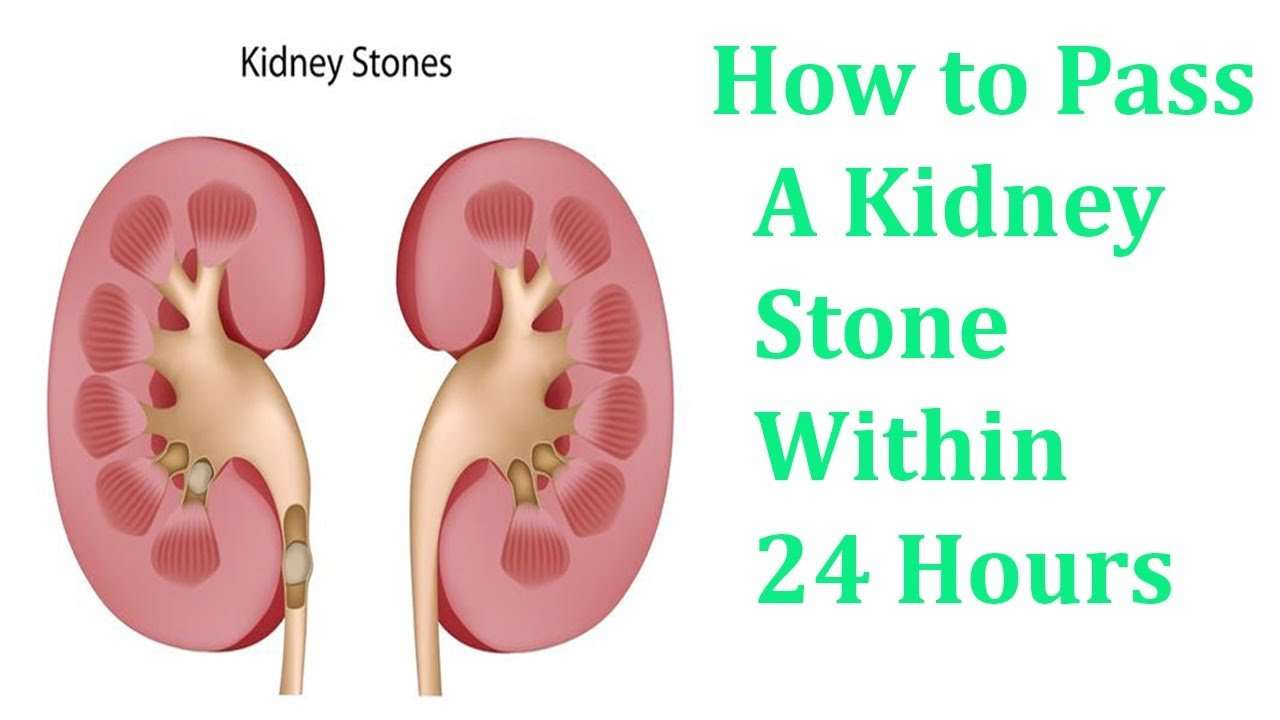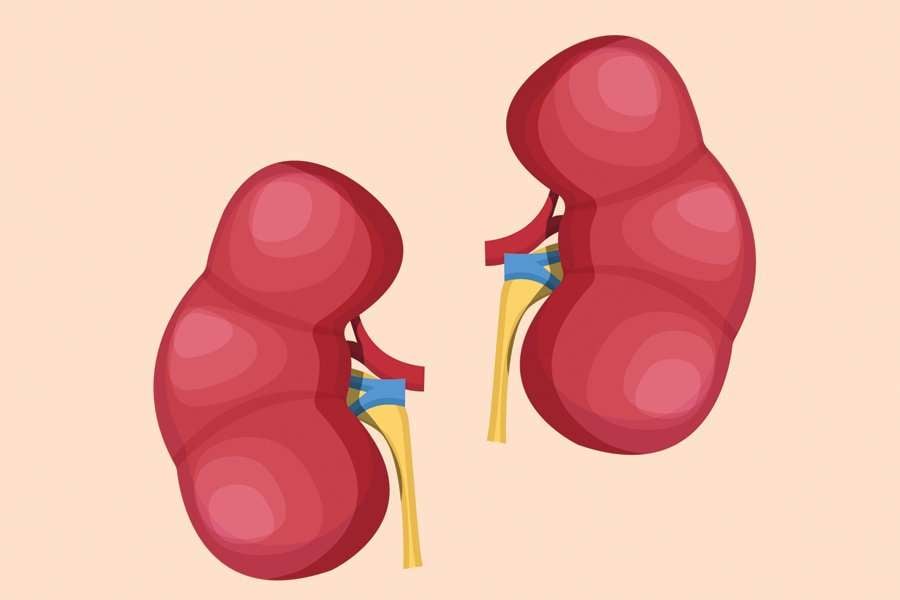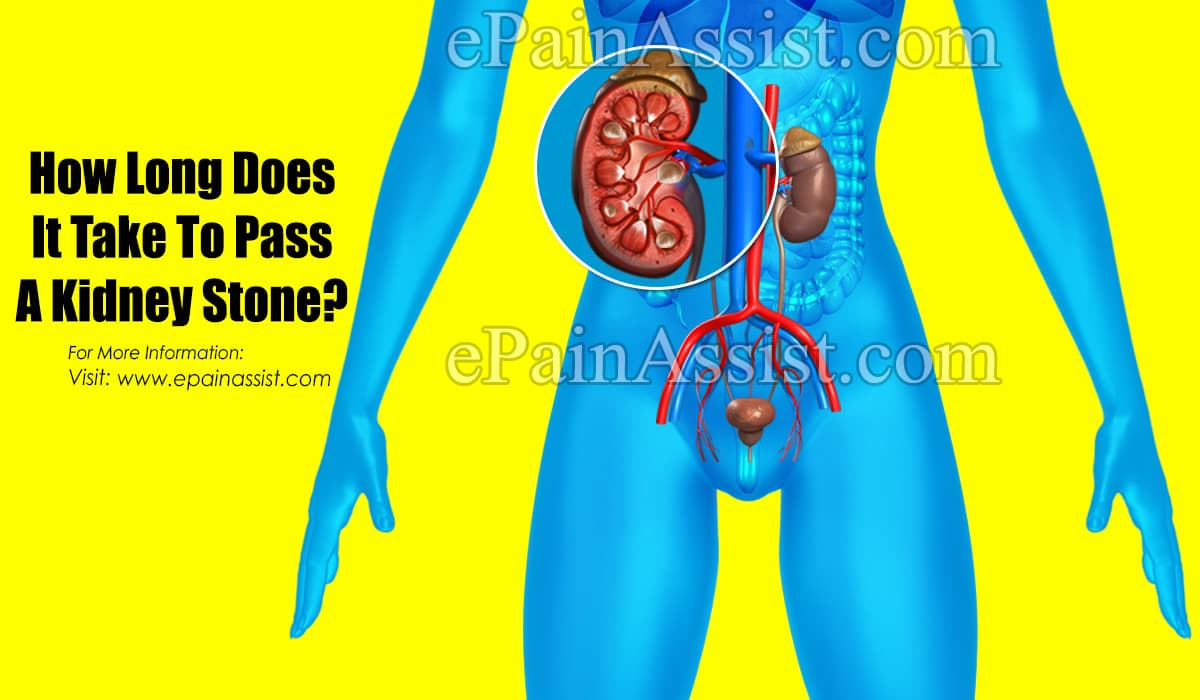How Small Is Small Enough
The smaller the kidney stone, the more likely it will pass on its own. If it is smaller than 5 mm , there is a 90% chance it will pass without further intervention. If the stone is between 5 mm and 10 mm, the odds are 50%. If a stone is too large to pass on its own, several treatment options are available.
Reducing Kidney Stone Risk
Drinking enough fluid will help keep your urine less concentrated with waste products. Darker urine is more concentrated, so your urine should appear very light yellow to clear if you are well hydrated. Most of the fluid you drink should be water. Most people should drink more than 12 glasses of water a day. Speak with a healthcare professional about the right amount of water that’s best for you. Water is better than soda, sports drinks or coffee/tea. lf you exercise or if it is hot outside, you should drink more. Sugar and high-fructose corn syrup should be limited to small quantities.
Eat more fruits and vegetables, which make the urine less acid. When the urine is less acid, then stones may be less able to form. Animal protein produces urine that has more acid, which can then increase your risk for kidney stones.
You can reduce excess salt in your diet. What foods are high in salt? Everyone thinks of salty potato chips and French fries. Those should be rarely eaten. There are other products that are salty: sandwich meats, canned soups, packaged meals, and even sports drinks.
Some herbal substances are promoted as helping prevent stones. You should know that there is insufficient published medical evidence to support the use of any herb or supplement in preventing stones.
- What food may cause a kidney stone?
- Should l take vitamin and mineral supplements?
- What beverages are good choices for me?
How Long Does It Take To Pass A Kidney Stone
According to the American Urological Association, the length of time required to pass a kidney stone located in the ureters , is an average of 8 days if the stone is less than 2mm, about 12 days for a stone between 2mm and 4mm, and 22 days if the stone is between 4mm and 6mm. Generally, however, most kidney stones will pass on their own in 40 days. But when a medical expulsive therapy is applied, a kidney stone will pass within a few days or weeks provided the patient is in good health. Medications called antispasmodics can be used to accelerate the process of passing a stone. The drugs relax the ureters and increase the speed of passing a stone by up to 5-7 days. A urologist may allow for up to 6 weeks for a kidney stone to pass on its own, but earlier intervention may be necessary if the stone is causing severe pain, gastric discomfort or urinary problems.
Read Also: Matcha Kidney Stones
What Factors Contribute To The Formation Of Kidney Stones
Kidney stones form when minerals and salts, most often calcium oxalate, crystallize in the kidneys and cause irritation or inflammation. These stones can develop anywhere in the urinary system, even though they are thought to begin in the kidneys.
Kidney stones are sometimes referred to as calculi or urolithiasis, which are also medical terms.
In the formation of kidney stones, dehydration is a significant contributing factor. Due to dehydration, fluid moves more slowly through the kidneys, increasing the probability of mineral and salt molecules interacting with one another and adhering together.
In certain cases, small stones may develop and pass through the urinary system without producing symptoms. Alternatively, the vast majority of medium and large stones are very painful to pass and require medical attention when they do so.
How Long Does It Take A Kidney Stone To Form

You can have kidney stones for years without knowing theyre there. As long as these stones stay in place within your kidney, you wont feel anything. Pain from a kidney stone typically starts when it moves out of your kidney. Sometimes, a stone can form more quickly within a few months.
Talk with your healthcare provider about your risk factors. They might do a 24-hour urine test to check how quickly you develop stones.
You May Like: Is Watermelon Good For The Kidneys
Symptoms Of A Kidney Stone
Small stones move into the bladder and out of the body with minimal symptoms.
Larger stones, though, can become lodged in the ureter, block urine flow and cause sharp pain in your back, side, lower abdomen or groin, and blood in your urine. Symptoms may also include burning urination, nausea, and fever. Fever could indicate a serious infection, a reason to call to your doctor immediately.
The location of your pain signals the location of your kidney stone:
Getting A Kidney Stone To Pass
After identifying the size and location of your kidney stone, follow the recommended treatment by your doctor. The vast majority of small kidney stones are able to be passed without medical intervention and can be helped with these steps:
Drinking water: By consuming as much as 3 liters of water a day, this will help flush out your renal system.
Take pain medication: Kidney stones can be extremely painful, therefore, taking pain medication like ibuprofen can help make the passing less agonizing.
Get an alpha-blocker from your doctor: An alpha-blocker can help relax your ureter and progress the kidney stone through your system.
Cut out the right foods: Removing high-oxalate foods like spinach, beets, potatoes, and nuts, as well as animal protein can help limit kidney stone minerals from forming.
Drink juice: Consuming juices from lemons, basil, and dandelion roots can provide compounds that regulate uric acid levels and help breakdown calcium deposits.
For larger stones , medical treatment is often required to enable kidney stones to be passed through the body. Common methods of care include soundwave therapy, surgery, and using a ureteroscope.
Shock Wave Therapy: A process called extracorporeal shock wave lithotripsy creates vibrations targeted at kidney stones to break the larger minerals into smaller pieces that can be passed by the body.
You May Like: Is Ginger Tea Good For Your Kidneys
What Precautions Need To Be Taken To Prevent The Occurrence Of Kidney Stones
- Drink at least six to eight ounces of water daily. Water will help in flushing away the stones present in urine. It can also help in dissolving smaller stones.
- Reduce the amount of salt that you consume in your diet.
- Reducing weight can also help reduce the risk of developing kidney stones especially if you are overweight. Avoid losing weight suddenly. Losing weight gradually is recommended.
- Consume a diet higher in calcium and lower in oxalate especially if you are dealing with calcium oxalate stones.
What Does Peeing Out A Kidney Stone Feel Like
Pain or burning during urination
Once the stone reaches the junction between the ureter and bladder, you’ll start to feel pain when you urinate . Your doctor might call this dysuria. The pain can feel sharp or burning. If you don’t know you have a kidney stone, you might mistake it for a urinary tract infection.
Read Also: Apple Cider Vinegar And Cranberry Juice For Kidney Stones
Medication For Kidney Stones
For most people with recurrent calcium stones, a combination of drinking enough fluids, avoiding urinary infections, and specific treatment with medications will significantly reduce or stop new stone formation.
Certain medications such as thiazide diuretics or indapamide reduce calcium excretion and decrease the chance of another calcium stone. Potassium citrate or citric juices are used to supplement thiazide treatment and are used by themselves for some conditions where the urine is too acidic.
For people who have a high level of uric acid in their urine, or who make uric acid stones, the medication allopurinol will usually stop the formation of new stones.
Can Kidney Stone Symptoms Come And Go
The length of time a stone can hang around is the primary reason that a person may feel like kidney stone symptoms come and go.
Once you start feeling the pain of a kidney stone, it can take anywhere between one to four weeks for the stone to actually pass. In the meantime, the pain can seem sporadic. Heres why:
During a bout of kidney stones, the initial pain is typically caused by the stone making its way through your very narrow ureter tube. There can also be pain if the stone lodges itself there and blocks urine flow out of the kidney, which results in pressure buildup and painful swelling, explains Dr. Kannady.
As your body tries to move the kidney stone through your ureter, some of your pain may also be from the waves of contractions used to force the kidney stone out. The pain may also move as the kidney stone moves along your urinary tract.
Once the stone makes it to your bladder, the pain might subside to some degree and you may notice urinary symptoms in its place. The final push from your bladder to outside of your body can reignite sharp feelings of pain, as the stone is now passing through another narrow tube called your urethra, says Dr. Kannady.
You May Like: Flomax Dosage For Kidney Stones
Also Check: Acv Kidney
When Do Kidney Stones Require Removal
Waiting for kidney stones to pass is not ideal for every case. According to the American Urological Association, kidney stone removal should be considered if a stone fails to pass on its own within 2 months. Likewise, stone removal is necessary if complications arise due to the stone. Complications that require stone removal include ureter blockage or irritation, urinary tract infection, decreased kidney function and uncontrolled pain, nausea or vomiting.
To remove kidney stones, a procedure called lithotripsy is often used. During the procedure, kidney stones are subjected to shock waves, resulting in the breakdown of larger stones into smaller pieces that can easily pass through the urinary tract. When lithotripsy is not effective, surgical techniques may be necessary to remove kidney stones. This may be done either by making a tiny incision in the skin or via an instrument passed through the urethra and bladder into the ureter.
It’s Easy To Get The Care You Need

See a Premier Physician Network provider near you.
Besides being painful, what arekidney stones?
Theyre solid formations of minerals and salts that crystalize in urine in the kidneys when concentrations are high. They can be as tiny as a grain of sand to pebble-size and larger. And they can develop at any age, from infants to the elderly.
Although some stones remain in the kidneys, others travel through the ureter and into the bladder, explains Howard Abromowitz, MD.
You May Like: Std That Affects Kidneys
Where Do Kidney Stones Come From
Kidney stones form develop when certain substances, such as calcium, oxalate, and uric acid, become concentrated enough to form crystals in your kidneys. The crystals grow larger into “stones.” About 80% to 85% of kidney stones are made of calcium. The rest are uric acid stones, which form in people with low urine pH levels.
After stones form in the kidneys, they can dislodge and pass down the ureter, blocking the flow of urine. The result is periods of severe pain, including flank pain , sometimes with blood in the urine, nausea, and vomiting. As the stones pass down the ureter toward the bladder, they may cause frequent urination, bladder pressure, or pain in the groin.
“If you experience any of these symptoms, see your primary care physician,” says Dr. Eisner. “He or she will likely perform a urinalysis and a renal ultrasound, abdominal x-ray, or CT scan to confirm kidney stones are the source of your pain and determine their size and number.”
Treatment: Shock Wave Therapy
The most common medical procedure for treating kidney stones is known as extracorporeal shock wave lithotripsy . This therapy uses high-energy shock waves to break a kidney stone into little pieces. The small pieces can then move through the urinary tract more easily. Side effects can include bleeding, bruising, or pain after the procedure.
Recommended Reading: Renal Diet Watermelon
How Do You Prevent Kidney Stones
Recurrent kidney stones are common and there are some measures that can help prevent future stones, such as:
- Increased fluid intake
- Water is best
- Avoid sugar-sweetened beverages which can increase the risk of developing kidney stones
Effective Treatment At St Pete Urology
At St Pete Urology, we provide a multidisciplinary approach to treating and managing kidney stones of all sizes. We have assembled a highly integrated team of nephrologists, urologists, radiologists and dietary and metabolic specialists to ensure comprehensive diagnosis, treatment and proper assessment of the risks leading to the formation of kidney stones. By applying the latest technology in treating kidney stones and a broad range of noninvasive and minimally-invasive procedures for removing small and large stones, we guarantee only the highest quality and successful treatment to all our patients. For more information, visit the St Pete Urology site.
Read Also: How Does Flomax Help With Kidney Stones
Risk Factors You Can Control
Drinking too little water is the most common cause of kidney stones. Diet also plays an important role. Eating a lot of animal protein, sodium, and high-oxalate foods, such as chocolate or dark green vegetables, can boost the risk for kidney stones in some people. Other risk factors include drinking sweetened beverages, putting on weight, and taking certain medications.
Why Does It Take That Long To Pass A Kidney Stone
Various factors influence the formation of kidney stones. People in their 30s and 40s are more susceptible to get kidney stones. The other risk factors include not drinking enough fluids, a diet that includes food with substances like phosphate, and many protein-rich foods that can lead to the formation of many stones. Having a family history of kidney stones, and blockage of the urinary tract can also be a great cause of kidney stones.
Certain medical conditions can even increase the risk of getting kidney stones. Kidney stones can pass through the ureter sometimes, but the process can be really painful. Any stone that is smaller than 4 mm can pass through within one to two weeks, but stones larger than 4 mm can take more than 2 to 3 weeks to pass completely.
Dont Miss: Pineapple Juice Kidney Stones
Also Check: Can Kidney Transplant Patients Eat Ginger
What Does It Feel Like When You Are Passing A Kidney Stone
Passing a kidney stone is commonly known to cause a kidney stone pain that does feel like sudden intense stabbing pain that comes and goes with painful frequent urination, blood in urine, nausea and vomiting. Fever and chills usually occur when there is a kidney or urinary tract infection.
The symptoms of passing a kidney stone and their severity usually depend on the location of the stone and its size. Kidney stone pain is one of the most common signs of kidney stones and usually occur as the stone blocks the renal pelvis or travels through the ureter. Kidney stone pain may affect the lower abdomen, belly or back flank pain. In some cases kidney stones may cause pain under ribs. The kidney stones pain location may indicate the part of the ureter the stone gets stuck. The kidney stone pain is especially severe when the kidney stone travels through a narrower passage of the ureter .
Once the stone is passed out of your body, many of the kidney stone symptoms typically get better fast.
Treatment Of Kidney Stones

Kidney stones can be managed in a number of ways, depending upon the size of the stone, your other medical problems, and your overall comfort level. Many small stones will pass with the help of medications, which will keep you comfortable while the stone passes naturally. This process may take a few days to a week or more.
For larger stones, stones that are associated with severe symptoms, or stones that will not pass with medical therapy, surgery is often required.
Read Also: How Does Flomax Work For Kidney Stones
Recommended Reading: Are Blackberries Good For Kidneys
Is There Any Way To Make Them Pass Faster
The best home remedy to encourage the stone to pass is to drink lots of fluids, especially plain water and citrus juices such as orange or grapefruit. The extra fluid causes you to urinate more, which helps the stone move and keeps it from growing. You should aim for at least 2 to 3 quarts of water per day.
Smaller stones are more likely to pass on their own, so you should take steps to keep the stone from growing. This includes eating a diet thats low in salt, calcium, and protein.
However, you need all of these for your body to function properly, so talk with your doctor about an appropriate diet to help you pass the stone.
Passing a kidney stone can be very painful. Taking pain medication such as ibuprofen wont speed up the process, but it can make you a lot more comfortable while passing the stone. A heating pad can also help.
If you have a fever, significant nausea, or are unable to keep down liquids without vomiting, you should seek medical care.
Likewise, if you have only one kidney or known kidney problems or damage, see a doctor immediately.
An infected kidney stone is a surgical emergency. If you notice any signs of infection, go to the hospital.